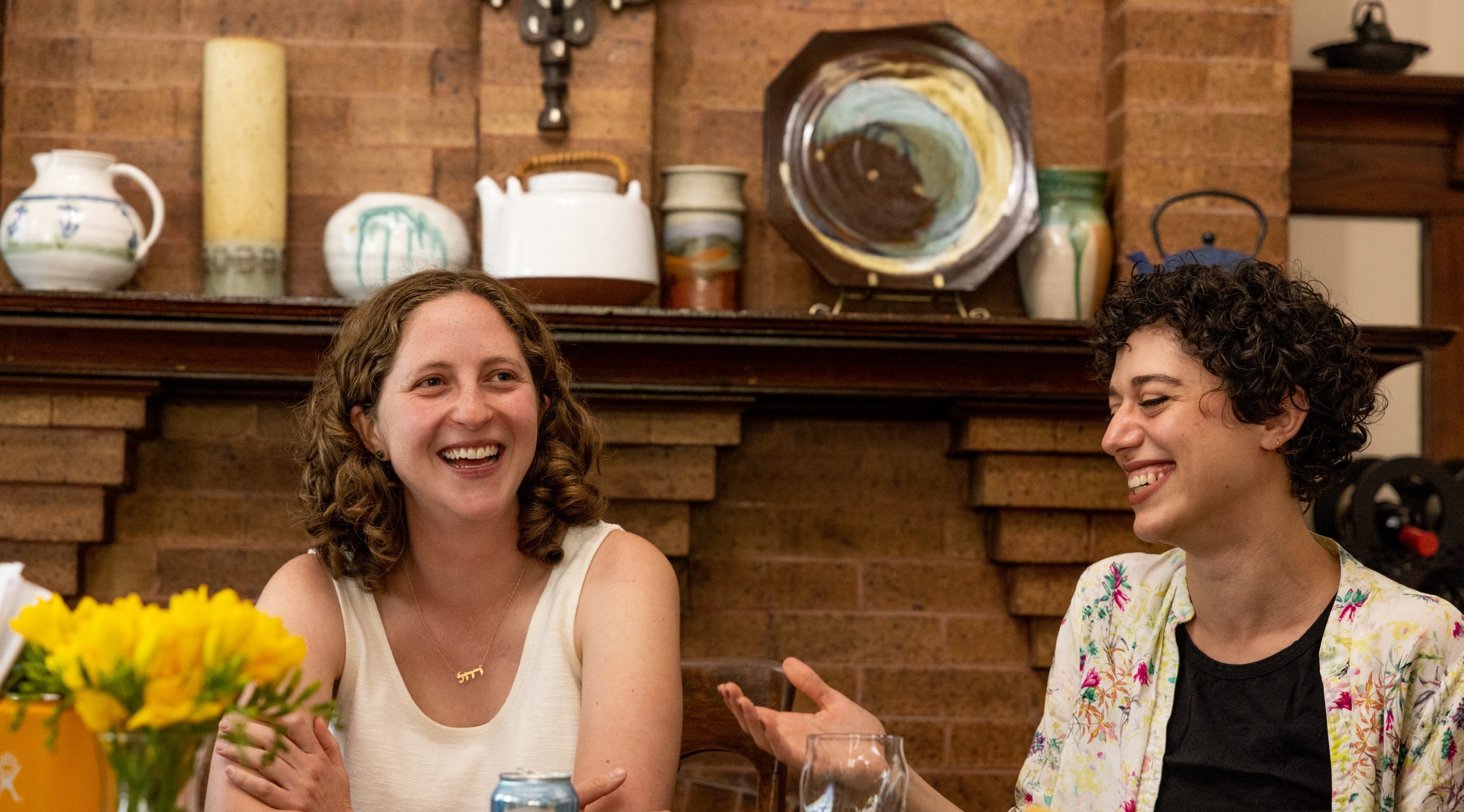
Aug 1, 2019 | by Rabbi Lisa Goldstein, Former Executive Director, Institute for Jewish Spirituality

The phrase “community of practice” is one of those bandied-about terms that seems particularly suited to Jewish spiritual groups: Community and practice – how obvious and how obviously beneficial!
And yet, it’s also not so simple. Just because you happen to share a profession, a craft or a practice with a group of other people doesn’t mean that the group will in fact be supportive or a good learning environment. The stories to the contrary are many and we might even say that particularly in our individualistically oriented society, the difficulties of communities of practice sometimes seem to outweigh the benefits.
One way to address this is to think of creating communities of practice as a spiritual practice itself. We can start by setting explicit intentions. By setting an intention, we have an anchor that we can return to – again and again – when we notice that we have moved away from the intention.
Those of you who have participated in IJS retreats know that we begin each retreat with guidelines about creating intentions around safety. They include things like being aware of judgment arising and trying to hold it with curiosity instead of conviction; assuming and extending welcome; allowing people to listen to their own inner voice, even when we think we know what it should say; “double confidentiality” which gives people the space to say something vulnerable and not have to revisit it unless they so choose. These guidelines help create intentions for a community of practice that supports the participants in the community in doing their own deep work of truth telling and loving kindness.
In your communities of spiritual practice, what are your intentions? What kind of community are you intending to create? What kind of transformation are you hoping to cultivate? What are the conditions that will help facilitate that? How do you communicate them to the entire community?
It sounds easy – and it’s not, even in the relatively small and temporary context of a retreat. But, as those of you who have participated in IJS retreats also know, the effort is worth it. As our summer retreat season closed, we saw once again the true power of a community of seekers, coming together and finding a safe environment, the way the heart can open, bonds can form and deepen, awareness expand. And those experiences can give us inspiration and fortitude to take with us as we continue on our way.

Nov 5, 2018 | by Rabbi Lisa Goldstein, Former Executive Director, Institute for Jewish Spirituality

image credit: Catherine MacBridge/Getty Images
Even before the horrific massacre at Tree of Life synagogue in Pittsburgh this past Shabbat, it was easy to feel overwhelmed by the state of the world. The forces at play are so huge and the stakes are so high. How do we muster the courage to act? How do we even discern what actions to take?
Following the teaching of Joanna Macy, we might consider three different paths: holding and taking care of those who urgently need our care; developing new life-sustaining structures for a better world; and cultivating a shift in consciousness, the ability to deeply take in and know how profoundly interconnected we all are.
These three paths themselves are interconnected, of course, and there is extraordinary work happening in all three areas. The goal of IJS’s teaching is rooted in the third path. Our practices, whether they are meditation, prayer, text study, middot work or body awareness, are all for the sake of opening our eyes to the underlying unity that is the hidden fabric of the universe. This is an essential knowing that can also inspire and support those who are immediately engaged in taking care of others and in leading us out of the darkness that is all around us.
And what a blessing to know that there are others on this path with us. Last week we held a retreat for our Kivvun cohort at the Trinity Retreat Center. We had frequently used this retreat center for our east coast retreats, enjoying the beautiful setting on the Housatonic River and the famously fantastic food, until they closed in the fall of 2013. But they recently reopened their doors and we went back, trying not to bring a comparing mind with us.
What we found was the highest standard of loving hospitality. Hakima, the Algerian women at the front desk, had boned up on her Hebrew and greeted us with a joyful, “Boker tov!” Julia and Heidi in the kitchen offered simple meals that were fresh, healthy, delightfully seasoned and absolutely delicious. But it was more than that. Without us asking, the staff removed the Christian iconography from the chapel so we could pray there for Kabbalat Shabbat without being uncomfortable. And on Sunday morning as they gathered for their own prayer, they sounded the church bell eleven times, one for each precious life that was violently ended during worship the day before in Pittsburgh.
Our Christian hosts embodied that loving unity for us, so that our experience of that interconnectedness could help us strengthen our own capacity to embody it and offer it to others. That is a profound action. As we go out and take care of others, build new structures, and yes, vote, let’s not forget the importance of cultivating that new sense of knowing as the loving ground for it all.
[image credit: CATHARINE MACBRIDE/GETTY IMAGES]
May 8, 2013 | by Rabbi Lisa Goldstein, Former Executive Director, Institute for Jewish Spirituality

I have a very exciting announcement to make.
But first, let me set the stage. We have long believed that cultivating mindful Jewish leaders could have a profound and even transformational impact on Jewish communal life. However, one of the persistent questions we have struggled with has been how to help alumni of our cohort programs transmit the practices that we have found so personally meaningful to their communities who are also seeking. The obstacles are many: overwhelming busy-ness, a lack of confidence in teaching the practices, Jewish organizational culture, lack of support, just to name a few.
Over the years, we have developed various tools to help address these obstacles. Starting this fall, we will have a new one to add to our repertoire.
The John Templeton Foundation has given us a major grant to support an innovative, national program to promote character development through mindfulness and tikkun middot practice in targeted Jewish communities led by Institute-trained rabbis, cantors, educators, mindfulness teachers, and community leaders. Over the next three years, we will work with 28 Jewish communities to bring a mindful approach to cultivating desirable behaviors or character traits (such as generosity, patience, truth-telling and humility) into the culture of these communities.
There are three significant innovations to this program. The first is that we will be providing training to help leaders bring a specific practice to their communities in a way that reflects the unique culture and realities of that particular community. Participants in the program will be given curricula, in-person trainings, regular webinar support and targeted consultations, all with the support of the other members of the cohort. Secondly, we will be exploring what happens when we make a systemic connection between strengthening individual character development and communal norms and culture. This will give us the opportunity to learn more about how transformation works along the spectrum of change within an individual, in interpersonal relationships, in institutions and in society at large. And thirdly, we will be pioneering a new approach to mussar that is grounded in mindfulness practice.
Rabbi Marc Margolius will be the director of the program. For more information, please visit the program page.
That a non-Jewish foundation with the clout of the Templeton Foundation has decided to invest in our exploration is just thrilling. We are hopeful that this will significantly improve the tools we can offer our alumni in helping to revitalize Jewish life.
For more information on the Templeton Foundation’s work, please click here.






